Honda is working with General Motors on a next-generation fuel-cell system that will go into an upcoming FCEV based on the CR-V. Teased in a new video, the SUV crossover is coming out this year as an indirect replacement for the Clarity sedan, which was retired in 2021.
The new model will combine a fuel cell with a larger battery pack. The promo shows the benefits of bidirectional charging as the owner powers his coffee maker at a remote location by using the battery's juice. Later in the video, we can see him going to a hydrogen fueling station to fill the pair of rear-mounted H2 tanks.
There are several battery-powered EVs on sale with this functionality, with notable examples being the Hyundai Ioniq 5 / Kia EV6 / Genesis GV60, Nissan Leaf, Ford F-150 Lightning, and a few Volkswagen models from the ID. lineup. The Mitsubishi Outlander PHEV has this functionality as well.
Throwing a battery pack into the mix should help curb range anxiety, especially since the hydrogen fueling infrastructure leaves a lot to be desired. Honda isn’t willing to go into specifics just yet but we do know the CR-V FCEV is going to be made at the Performance Manufacturing Center (PMC) in Ohio. Yes, that's where the Acura NSX used to roll off the assembly line until the hybrid supercar was discontinued in November 2022. Even the Japan-spec version will be imported from the PMC site.
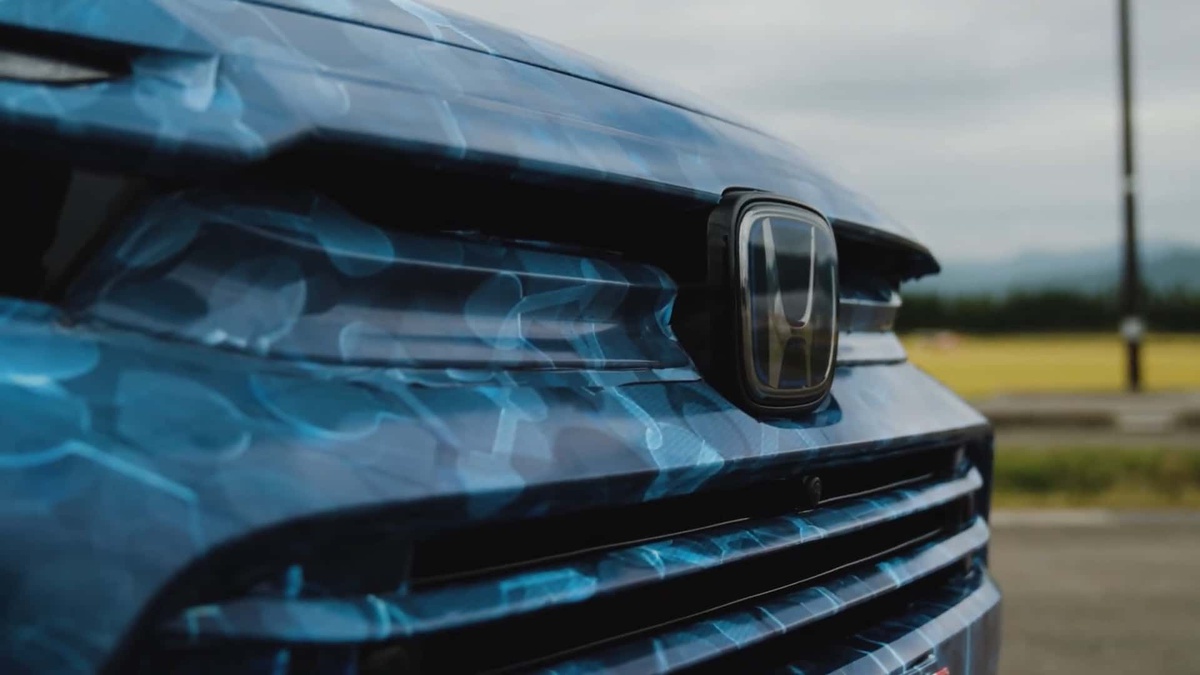
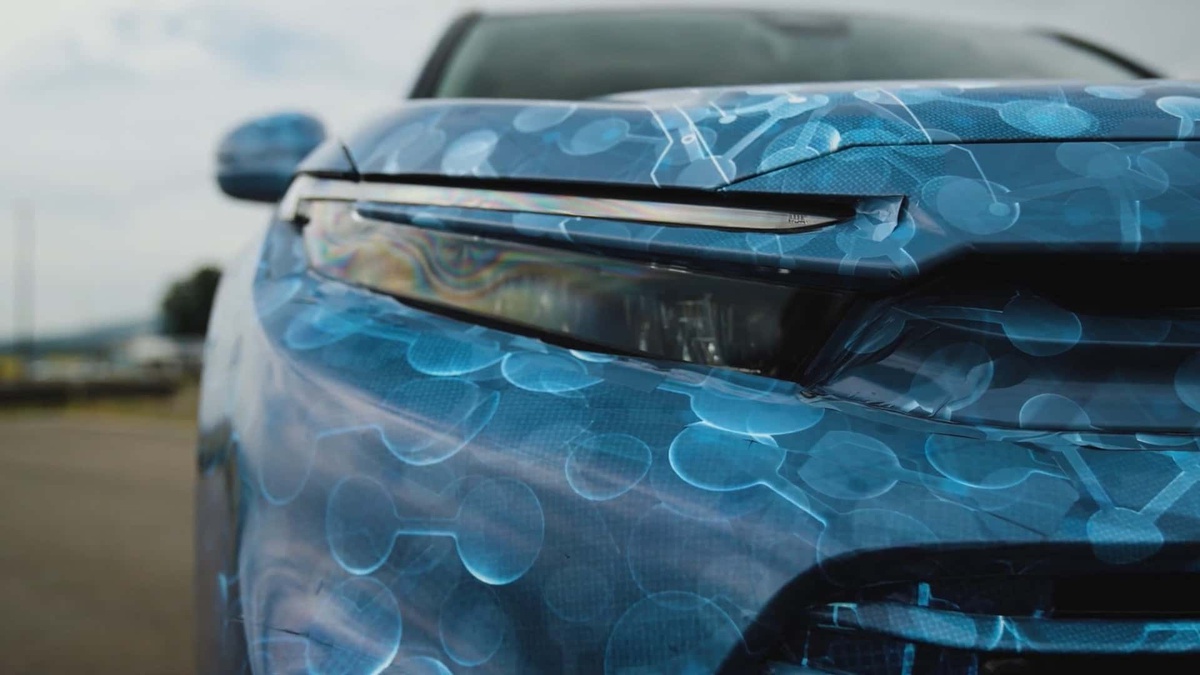
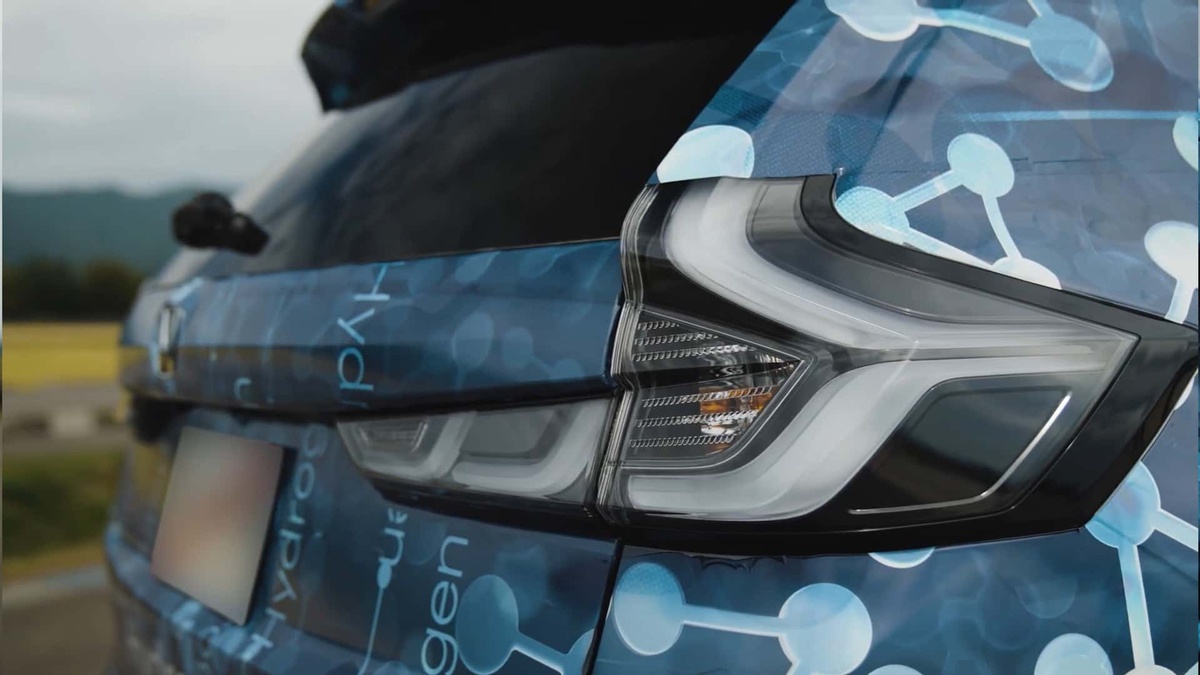
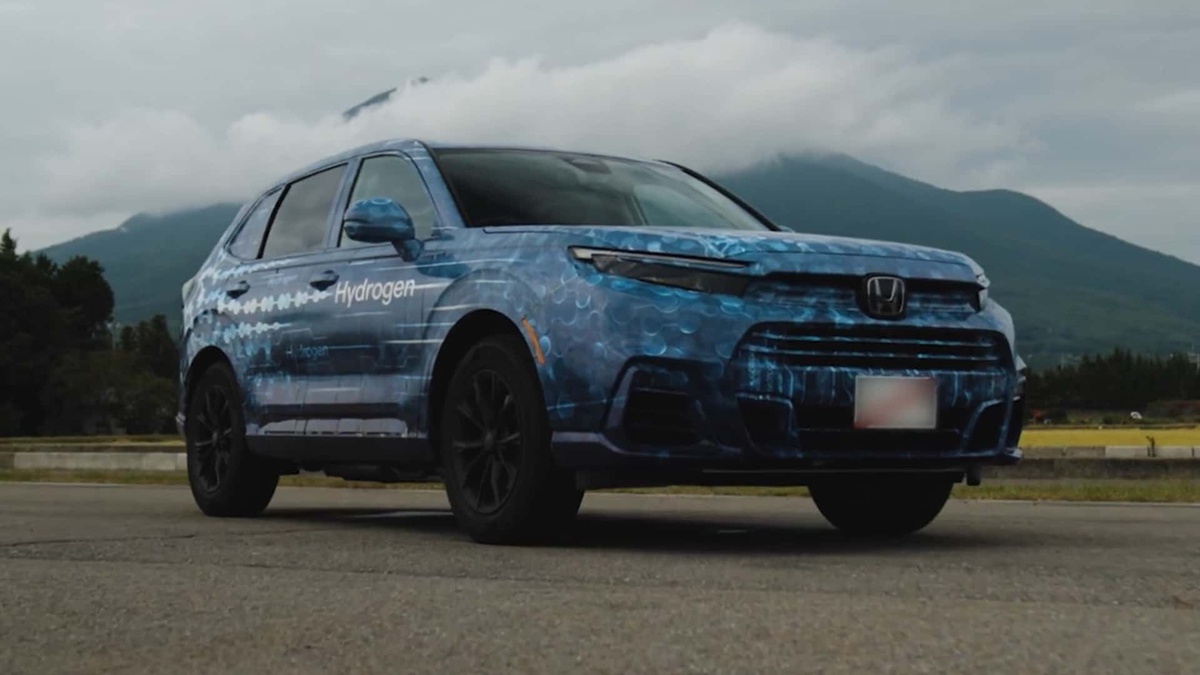
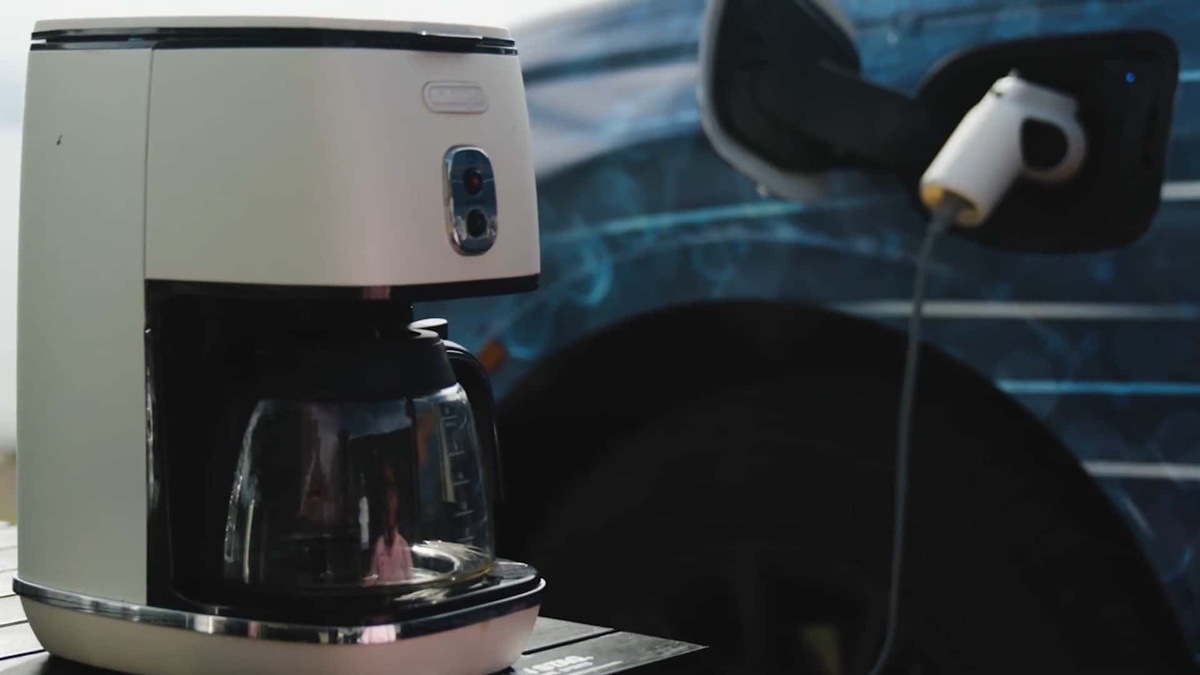
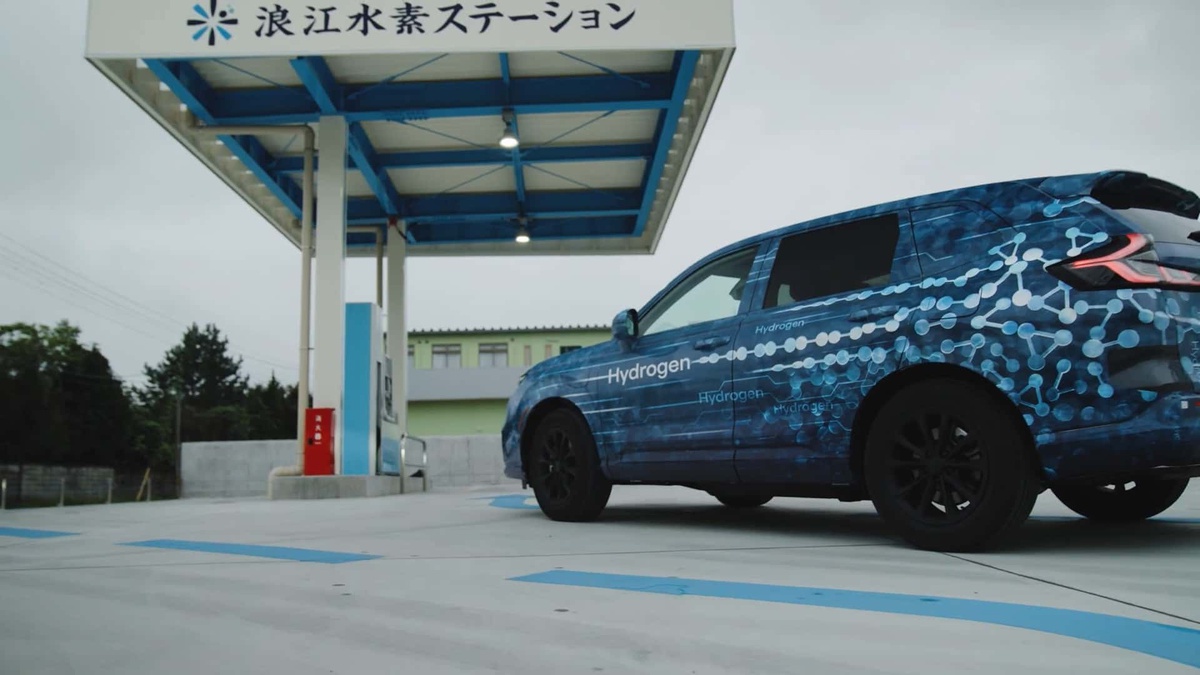
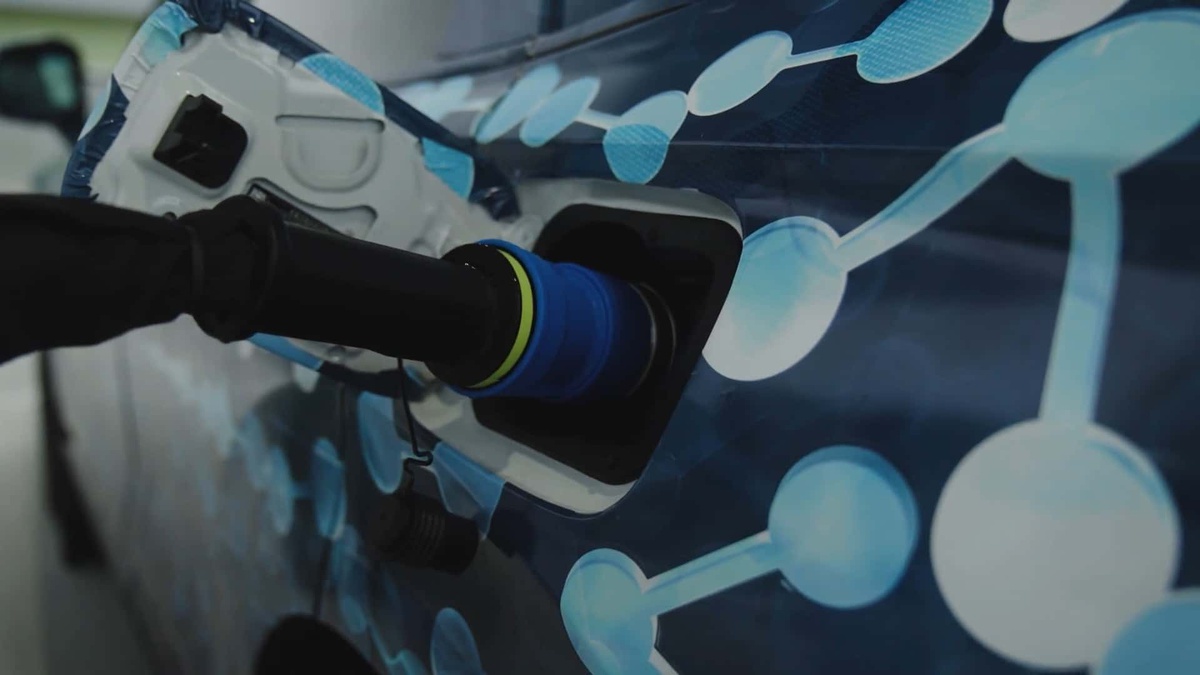
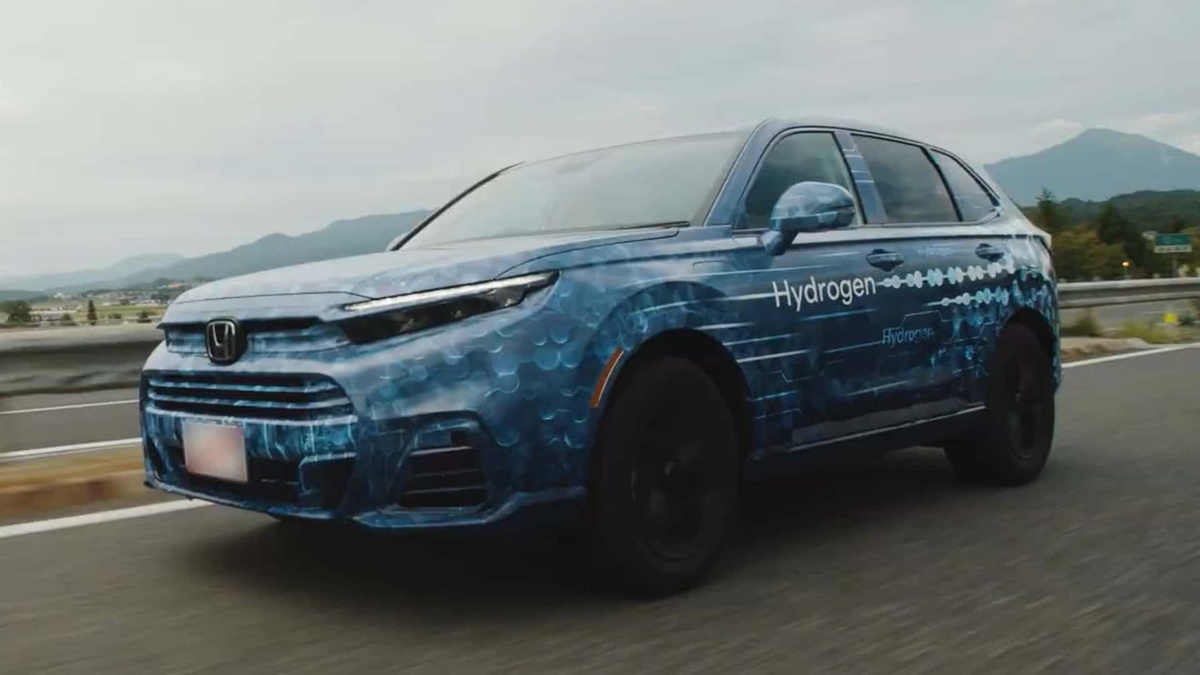
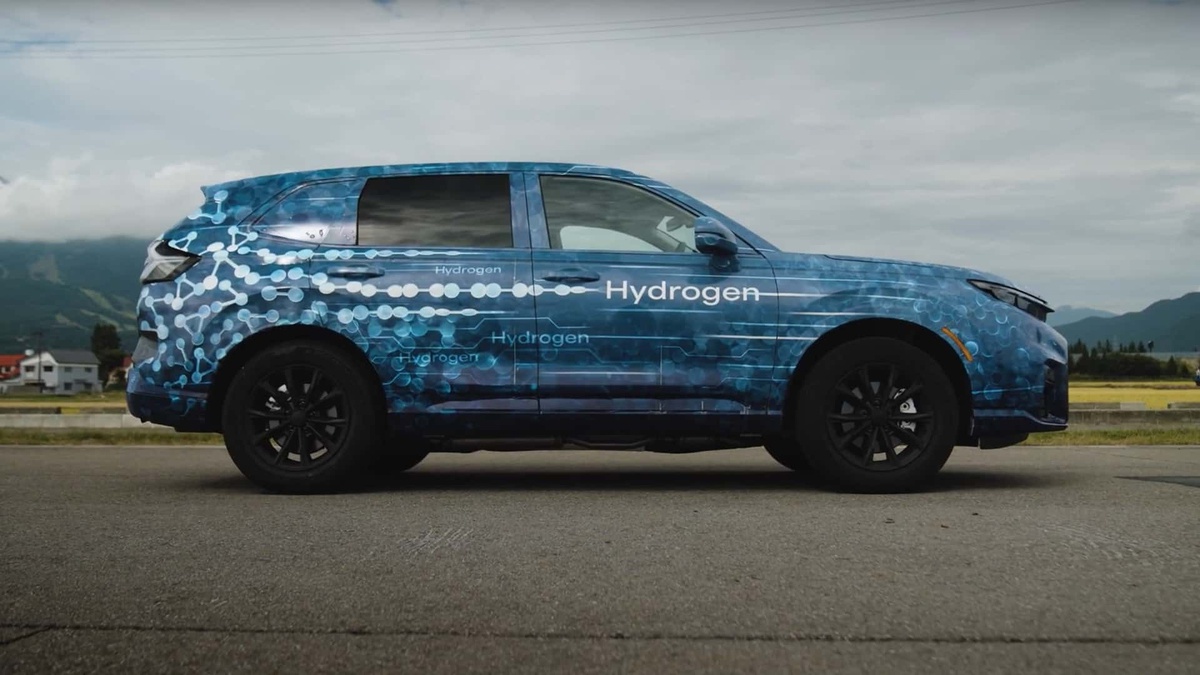
Honda CR-V Hydrogen
The prototype featured in this video wearing a blue wrap appears to be the US version judging by the orange side markers. Compared to a regular CR-V, this one has clear taillights and a charging port on the driver's side front fender to recharge the battery or power home appliances or other devices. It's unclear whether Honda is keeping the CR-V name or it intends to use something else.
Honda has said the fuel cell system will be two-thirds less costly to build and twice as durable. When it arrives later this year, the CR-V FCEV is set to become the only fuel-cell electric passenger vehicle made in America.
It'll compete in a rarified segment since hydrogen cars are few and far between in 2024. Toyota has the Japan-made Mirai – which it admits has not been successful – and Hyundai has promised that a next generation of its Korean-built Nexo will be launched in 2025.
Source: Motor1
.jpg)
